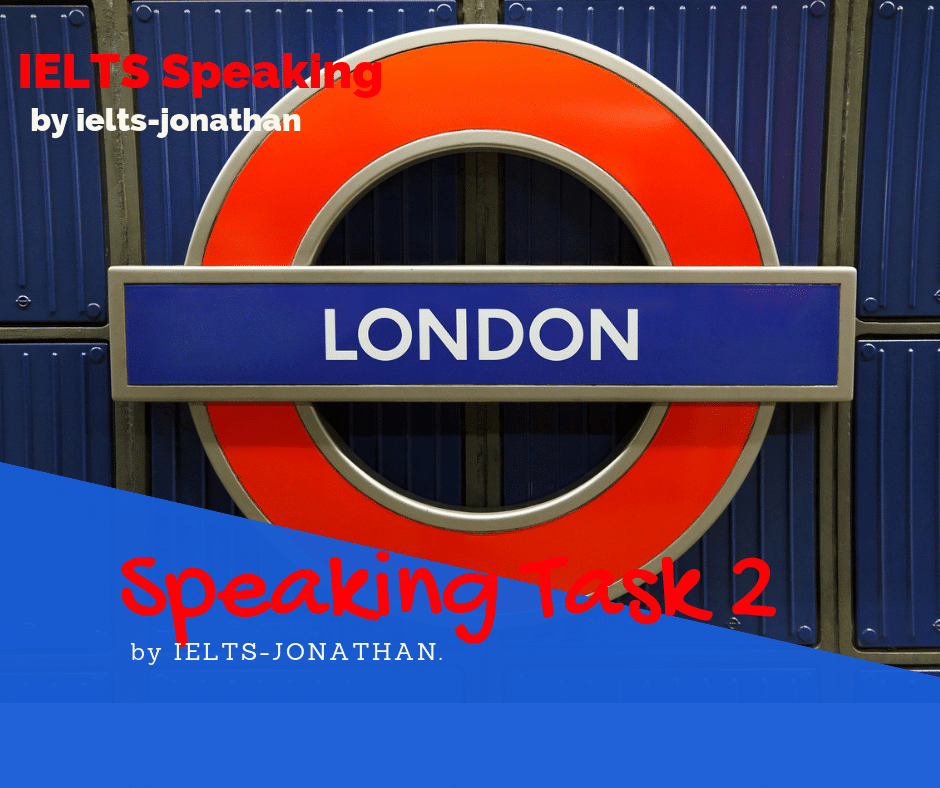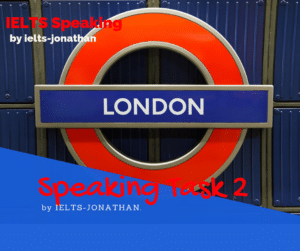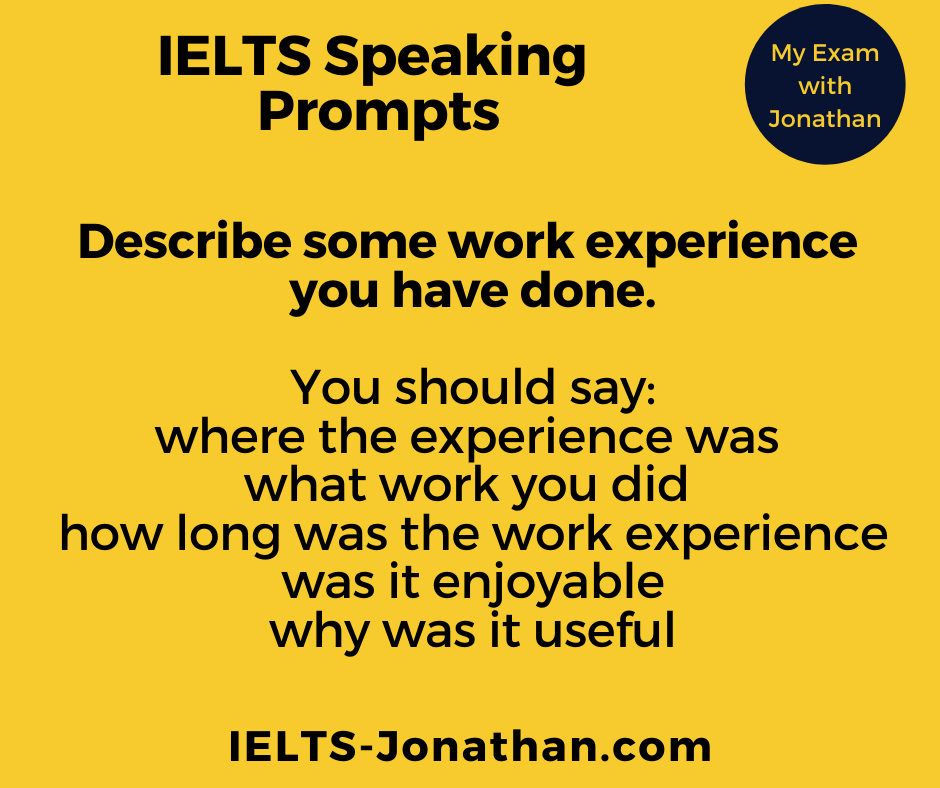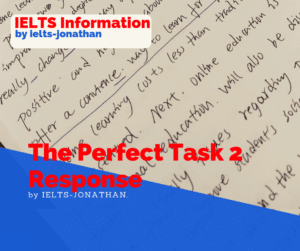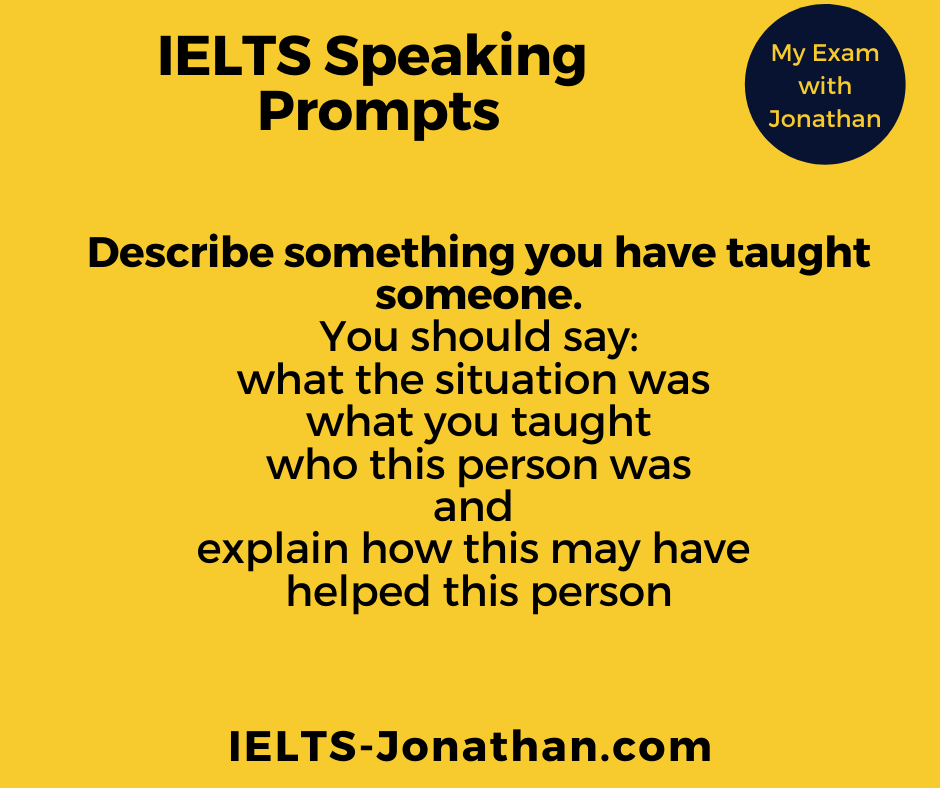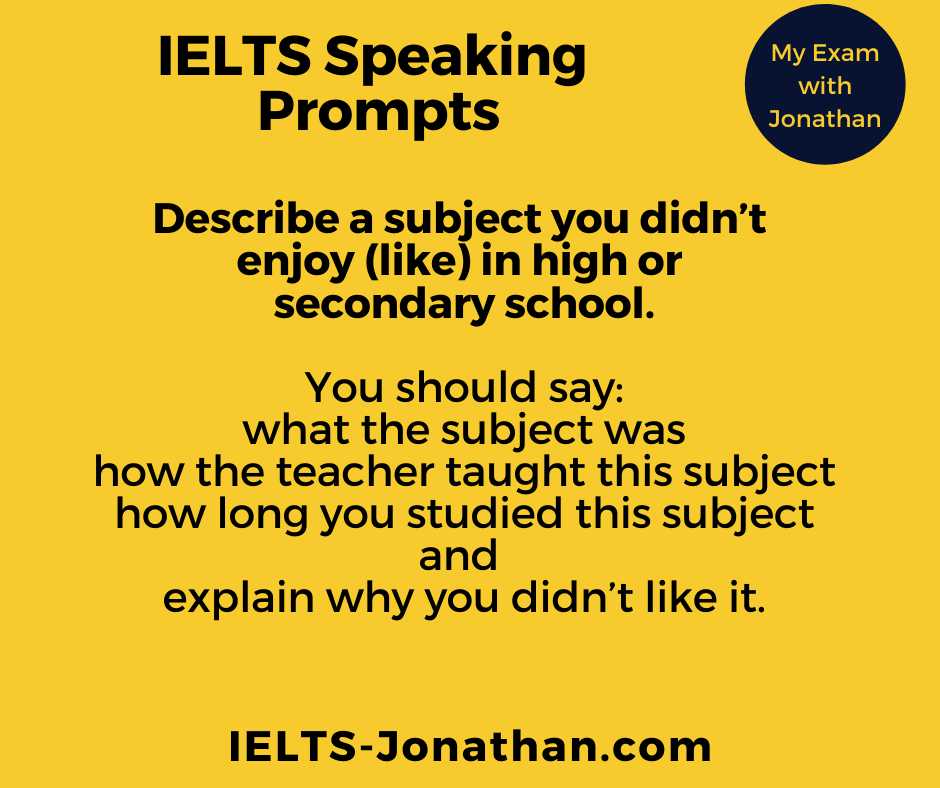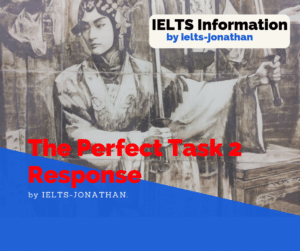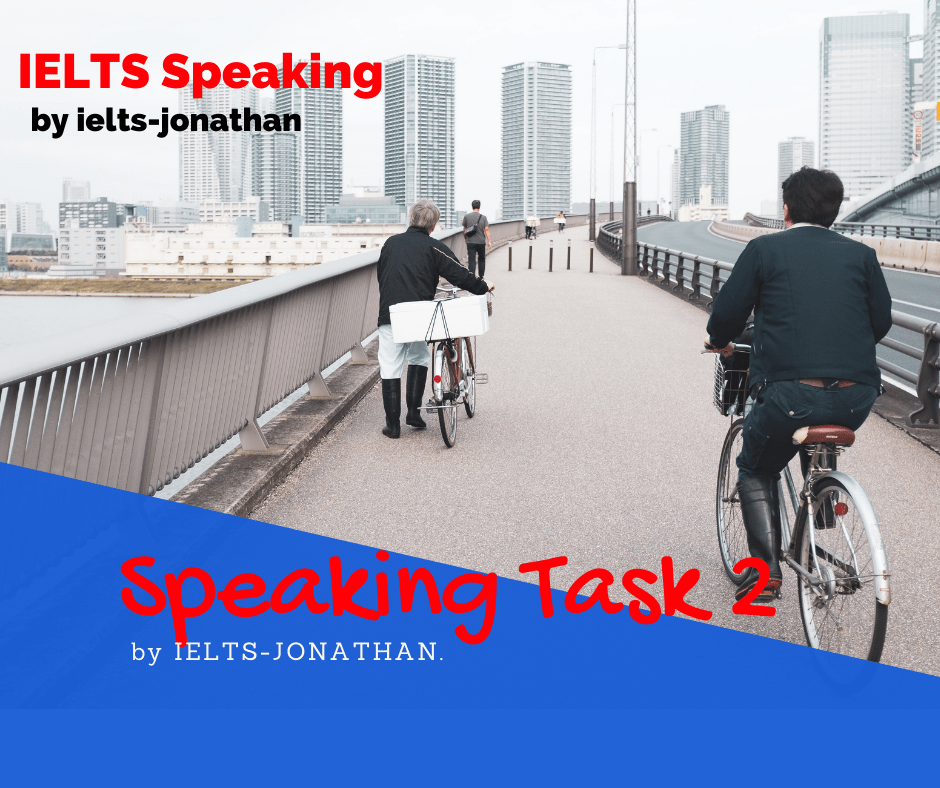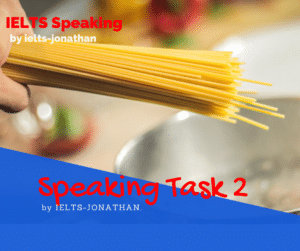Did you know that the second part of the IELTS Speaking test can be the most difficult for candidates, even Native Speakers.
But don’t despair it can also be the easiest part, and the most enjoyable.
There is a valid reason for this part of the IELTS test, and I will explain this below.
One reason for Part 2 is to allow the candidate speak at length and meet the fluency criteria.
A second reason is to allow the examiner to grade your ability for the follow up questions in Part 3.
They are trained to listen carefully for language range, grammar accuracy and pronunciation is normal speech.
They can then chose the best question sets in Part 3 that allows you to display your real language ability. So it’s important to fill that 2 minutes the best you can.
Part 2 Structure
You are given a set of prompts and a question.
The prompts are not particularly challenging, but follow a pattern to give you ‘ideas’ and ‘structure’ for your 2 minute talk.
This gives the examiner ‘a further opinion‘ to your level, ready for Part 3.
One way to do well in this section is to try and relax.
A relaxed candidate always performs better and responds well.
If you don’t understand something, always ask the examiner to repeat the prompt question.
The examiner can’t help you directly, but repetition might help you understand the prompt better.
Other tips are
- Don’t give the examiner an opportunity to ask ‘can you say anything else about that’.
- Speak for the full 2 minutes until the examiner stops you.
- Don’t hesitate too much, you are allowed to make some mistakes, it’s natural.
- Connect your sentences and use the structure given in the prompt.
- Attempt to use complex sentences rather than short, simply ones.
and
- Don’t be afraid to correct yourself.
What if you really don’t understand the prompt or even worse the prompt doesn’t apply to you?
If you’re preparing for IELTS, and feel you cannot answer some of the speaking questions properly, simply because they really do not apply to your current life experience, then don’t worry as you’re not alone.
For example:
Q. Talk about an object you own that is especially valuable or important to you.
Problem: I have a quite spartan lifestyle and I don’t have any emotional attachment to any objects I own.
Q. Talk about an object that has had great influence in your life, and explain how it influenced your life.
Problem: While I could talk for hours about books that I love, I don’t really feel that there is a book that has truly influenced my life.
Describe a city you know well and that has changed a lot.
You should say
were this city is
why it has changed
how it is changed
and say it has changed for the better
The city I want to describe is London, the UK’s capital. I remember an exhibition I went to and some of the photos used are online now. The exhibition showed how London was in the past and I was able to compare and consider its changes, as I live there now.
The landscape of London has been constantly in flux because of its growth, destruction of parts of the city during the Second World War and its rejuvenation – and the exhibition showcased a tool developed to show just how much the face of the city has changed. Modern Google Street View images overlaid photographs from the first half of the 20th century and these offered a fascinating insight into everyday life in the capital.
I think Londoners would immediately notice the absence of the crowded main roads in well-known districts, like Whitehall and Oxford Circus. The photographs also show trams going along Embankment and horse-drawn carriages making up the majority of traffic. These have all gone, replaced by ‘black cabs’, red busses and more recently silent, electric taxis. The historic images also reflect the changes in the fashion taste of Londoners, with old photographs featuring people sporting straw-boat hats and long frocks. Some of the images show the city in its darker days. An eerie picture of Harrods taken in 1940, the first year of the Blitz, shows deserted streets against a smoggy background.
However, some things have stayed the same. Numerous lesser-known landmarks of the city have endured through the years. Clock towers erected several generations ago in Clapham Common and Stockwell are still standing. The columned exterior of Covent Garden Market has also changed little since 1905.
And traditions, such as the bearskin hats of the guardsmen at Buckingham Palace, have also remained.
Despite this, although the capital is attempting to move into the 21st century, for example, with infrastructure upgrades and environmental improvements, it remains a product of the 19th century in the history that can be seen around you.
Note: Adapted from www.independent.co.uk
Solution to this problem
IELTS is a test of your language ability, not intelligence or knowledge.
You may think the IELTS test is an interrogation, but you don’t really need to answer with the truth.
However, I would feel more comfortable with the be honest approach, even if it does not directly answer the question.
You would probably be able to answer more naturally, and therefore be more fluent.
Which one do you think is a better strategy?
You can use tips and information on this website to help make it easier to obtain a higher score, but remember you still need to work at learning the language to be successful.
Please share to someone you know and in the meantime take a look at my Facebook Page and Website for IELTS answers and you can also join my Facebook Group here too.
Good Luck
Jonathan
I’m Jonathan
I’ve taught IELTS and University English in more than a dozen universities and schools around the world.
I’m a parent, traveller and passionate about language teaching and helping students achieve their dreams.
Whilst living in Austria or working in Asia, I run IELTS courses to help students get to where they want to be.
If you are serious about IELTS, connect with me to see how I can help you.

